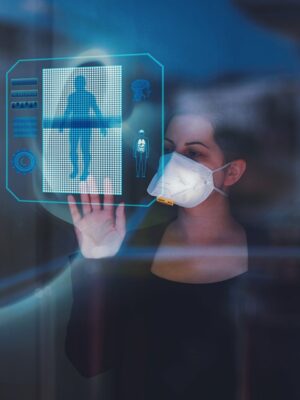Translation services for UK Medical Case Studies are essential for disseminating high-quality healthcare knowledge globally. These services ensure that medical case studies, which form the backbone of the UK's healthcare system's reputation for patient safety and quality care, are accurately translated into various languages. This process is critical as it maintains the integrity of the original content, respects both medical terminology and cultural nuances, and supports healthcare professionals in making informed decisions for patients with diverse linguistic backgrounds. The success of these translations relies on expert translators who are both linguistically proficient and medically knowledgeable, utilizing advanced translation technologies under human oversight to minimize errors. By adhering to strict standards and protocols, these services uphold the high-quality benchmarks of UK healthcare and contribute significantly to global medical advancement, ensuring that patient care and clinical decision-making are not hindered by language barriers.
navigating the complexities of healthcare, particularly within the rigorous standards of the UK, necessitates a thorough understanding of the benchmarks set forth by its regulatory bodies. This article delves into the pivotal role of translation services in ensuring that medical case studies adhere to these stringent requirements. By examining criteria for effective translations and assessing accuracy and reliability, we provide insights into enhancing multilingual accessibility and compliance within UK healthcare. Join us as we explore how translation services for UK medical case studies bridge language barriers, uphold ethical standards, and contribute to the advancement of global medical knowledge.
- Overview of UK Healthcare Standards and Their Importance in Medical Case Studies
- The Role of Translation Services in Bridging Language Barriers for UK Medical Case Studies
- Criteria for Effective Translation in UK Medical Case Studies
- Assessing the Accuracy and Reliability of Translated Case Studies Within the UK Healthcare Context
- Strategies for Enhancing Multilingual Accessibility and Compliance in UK Medical Case Studies Through Translation Services
Overview of UK Healthcare Standards and Their Importance in Medical Case Studies

The United Kingdom’s healthcare standards are a cornerstone of patient safety and the quality of care provided within its national health system. These standards encompass a wide range of criteria, from clinical governance to patient experience, and set the benchmark for all medical services delivered across the country. They are informed by robust evidence-based practice and are designed to ensure that healthcare is not only safe but also effective, compassionate, and responsive to individuals’ needs. For medical case studies, which often serve as educational tools and aids in clinical decision-making, adherence to these standards is crucial. Translation services for UK Medical Case Studies play a pivotal role in this context, facilitating the communication of complex medical information across diverse linguistic barriers. These services ensure that case studies accurately reflect the UK’s healthcare benchmarks and are accessible to a global audience, which includes healthcare professionals, researchers, and students who may be involved in cross-border healthcare initiatives or wish to study the UK’s healthcare practices. By providing precise translations, these services uphold the integrity of medical case studies and contribute to the global dissemination of high-quality healthcare knowledge, enhancing the relevance and applicability of UK medical case studies on an international scale. The rigorous process of translation for such case studies not only makes the content accessible but also ensures that the nuances of the UK’s healthcare standards are accurately conveyed, thereby supporting the global exchange of medical knowledge and fostering a deeper understanding of these stringent yet vital quality measures.
The Role of Translation Services in Bridging Language Barriers for UK Medical Case Studies

In the multicultural context of the United Kingdom’s healthcare system, the role of translation services becomes pivotal in ensuring effective communication and patient care. As UK medical case studies increasingly feature diverse populations, the accuracy and clarity of these translations are paramount to capture nuances in medical terminology and cultural references. Translation services for UK Medical Case Studies must be precise to convey the correct information, not only to maintain patient safety but also to support research integrity and the dissemination of knowledge. These services facilitate the understanding of clinical narratives, enabling healthcare professionals to make informed decisions and tailor their approach to meet the needs of patients with different linguistic backgrounds. Furthermore, reliable translation ensures that case studies are accessible to a global audience, contributing to international collaboration and the advancement of medical science.
The quality of translation services directly impacts the reliability and usefulness of UK medical case studies. It is crucial for these translations to be undertaken by professionals who are not only linguistically proficient but also medically informed. This dual expertise allows for a seamless integration of medical content into the target language, maintaining the integrity of the original case study while making it comprehensible and actionable for practitioners from different regions. The use of advanced translation technologies, coupled with human oversight, can mitigate errors that might arise from direct machine translations, thereby ensuring that the insights gleaned from UK medical case studies are accurately communicated to a wider audience. This is essential for global healthcare advancement and for upholding the high standards set by UK healthcare regulations.
Criteria for Effective Translation in UK Medical Case Studies

In assessing the effectiveness of translation services for UK medical case studies, adherence to stringent standards is paramount. The translations must accurately convey complex medical terminology and clinical nuances, ensuring that all patient data and treatment details are precisely articulated in the target language. This requires translators who are not only proficient in the relevant languages but also well-versed in medical terminology, capable of utilizing specialized translation software, and aware of the UK’s healthcare regulations. The translations should maintain the integrity of the original case studies, with a focus on clarity, precision, and confidentiality to protect patient information. Additionally, these translations should be performed by professionals who understand the cultural context and idiomatic expressions within both the source and target languages, which is crucial for maintaining the meaning and intent of the medical content. This level of expertise and attention to detail underscores the importance of high-quality translation services in the realm of UK medical case studies, ensuring that these critical documents are reliable and usable across different linguistic and cultural settings.
Assessing the Accuracy and Reliability of Translated Case Studies Within the UK Healthcare Context

When evaluating the efficacy of translated case studies within the UK healthcare context, the accuracy and reliability of the translations are paramount. The use of high-quality translation services for UK medical case studies is essential to ensure that patient care and clinical decision-making are not compromised by inaccuracies. Translated case studies must convey the nuances and complexities inherent in medical narratives with precision. This includes not only the direct translation of terms but also the adaptation of medical jargon and concepts to align with UK healthcare standards and terminologies. The reliability of these translations is critical, as they inform clinical practices, research, and educational materials that ultimately impact patient outcomes. Ensuring that all translated case studies are vetted by professionals proficient in both the source and target languages, and familiar with medical vernacular, is a necessary step to guarantee their utility and relevance within UK healthcare settings. This vetting process often involves peer review and may incorporate feedback from medical practitioners who are experts in the field. By adhering to stringent translation protocols, translated case studies can serve as valuable tools for enhancing the quality of care and advancing medical knowledge across the UK’s diverse healthcare landscape.
Strategies for Enhancing Multilingual Accessibility and Compliance in UK Medical Case Studies Through Translation Services

Enhancing multilingual accessibility in UK medical case studies is a critical component in providing comprehensive healthcare insights that are inclusive and applicable to diverse populations. Translation services for UK Medical Case Studies play an integral role in this process, ensuring that the nuances of medical terminology and patient experiences are accurately conveyed across different languages. By adopting sophisticated translation technology, UK healthcare institutions can bridge language barriers, making case studies accessible to a wider range of practitioners, researchers, and patients. This not only broadens the reach of valuable clinical data but also promotes a better understanding of various cultures’ health perspectives. Furthermore, employing specialist translators with expertise in both medical and linguistic fields guarantees that the translated content maintains its integrity and relevance, adhering to UK healthcare standards. These strategies are essential for ensuring that case studies inform and guide best practices in patient care, reflecting the commitment of the UK’s healthcare sector to inclusivity and excellence.
In the quest to maintain high standards of compliance and accessibility, translation services for UK Medical Case Studies must adhere to stringent quality assurance protocols. This involves rigorous validation processes that verify the accuracy, consistency, and cultural appropriateness of translations. By incorporating feedback mechanisms and continuous training for translators, these services can offer error-free, contextually accurate, and reliable translations. Such dedication to precision not only enhances the educational value of medical case studies but also paves the way for better patient outcomes by facilitating informed decision-making and shared understanding between healthcare providers and multilingual patients. This commitment to excellence in translation services is a testament to the UK’s forward-thinking approach in adapting to the linguistic needs of the modern, global healthcare environment.
In evaluating medical case studies against the backdrop of UK healthcare standards, it is clear that the integration of robust translation services plays a pivotal role in ensuring these studies meet the necessary criteria. The intricate process of accurate and reliable translation, as detailed in this article, is not merely a matter of linguistic transfer but a critical component in maintaining the integrity of medical information. Through the application of stringent evaluation strategies and commitment to multilingual accessibility, UK medical case studies can achieve compliance and enhance their value within the global healthcare community. The insights provided here underscore the importance of professional translation services in this field, ensuring that all stakeholders have access to high-quality, standard-compliant medical information essential for patient care and advancement in healthcare.
